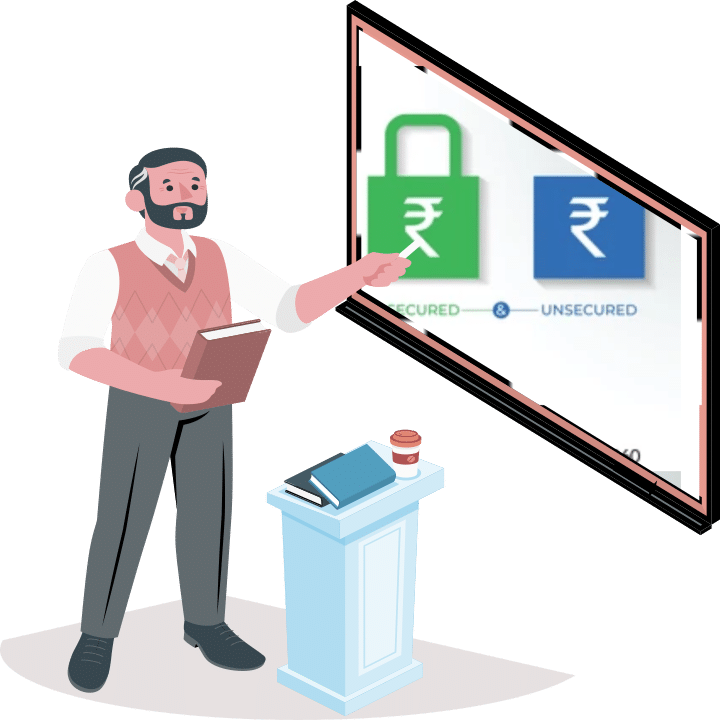Borrowing money, whether on a credit card or through a personal loan, results in debt that should be repaid, frequently with interest. Consumer loans and other financing options are divided into two categories: secured debt and unsecured debt. The presence or lack of collateral, which backs the debt and provides security to the lender against non-repayment by the borrower, is the primary distinction between the two.
Secured Debt
Secured debts are loans or lines of credit that have some form of collateral backing them up and where the borrower usually puts some asset as a surety.
Mortgages and vehicle loans are some of the common types of secured debt, in which the item being financed serves as collateral for the loan. The loan issuer eventually takes possession of the asset if the borrower fails to make timely payments. The property in question is used to back the repayment terms when an individual or business takes out a mortgage; the lending institution retains equity (financial interest) in the property until the debt is paid in full. If the borrower fails to make payments, the lender may seize and sell the property to repay the money owing.
Unsecured Debt
Because the borrower has so much more to lose by failing to meet his financial obligations, the risk of default on a secured debt, also known as counterparty risk to the lender, is often low. And since a secured loan carries less risk, interest rates are usually lower than for unsecured loans.
There are no assets to seize because unsecured debts are not backed by collateral. One still has to agree to pay, but won’t have to put your house, car, or other valuables on the line to acquire a loan or line of credit. On these so-called signature loans, banks usually demand a higher interest rate. In addition, credit score and debt-to-income requirements are typically tighter for these loans, and they are only available to the most trustworthy borrowers. However, if you match these stringent criteria’s, you may be eligible for some good personal loans. Choosing the better option out of the two would be tough because, regardless of the sort of debt, if you don’t pay your bills, your credit score would seriously be impacted.
